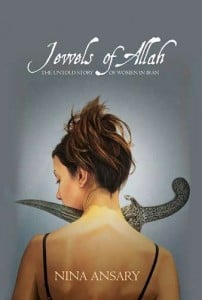Recently, the “Goatmilk” blog hosted a debate, with the resolution: Islam is Incompatible with Feminism. Speaking for the motion was Mohamad Tabbaa, and opposing it was Katrina Daly Thompson.
Not surprisingly, several MMW writers had something to say in response. The reactions of Syma, Nicole, and Eren are shared here in two parts. You can find Part One here.
Eren: Tabbaa talks about feminism but fails to make it clear that feminism is not a monolithic body, and arguably, is not a Western invention [Multiple Critique: Islamic Feminist Rhetorical Strategies]. As a matter of fact, a lot of the Muslim feminist scholarship go back to the images of A’isha and Umm Salama (two of the Prophet’s wives)[The Veil and the Male Elite] to draw on the fact that women have been involved and addressed by Islam and the Qur’an from the beginning. An important point is that, unlike Tabbaa’s interpretation of what feminists (he never fully explain which feminists he is talking about) are trying to impose on Islam, many Muslim feminists do not dismiss and deem as useless the historical body of knowledge that permeates different aspects of Islam (Islam is not monolithic either). Instead, some Muslim feminists recognize that scholars are products of their own times, personal experiences and biases.
Nicole: We need Islamic feminist voices. Platitudes like Mr. Tabbaa’s “oh the Quran is enough” don’t give Muslim women equal treatment in practice. As Katrina Daly Thompson said in the counter argument,
“Feminism and Islam both need Muslim feminists—Muslim men and women who believe in the full humanity of women—to fight against gender discrimination within Muslim cultures and spaces. When feminist demands—such as ending gender segregation in mosques—seem to conflict with the long-standing practices of orthodox Muslims, we need a space for open discussion and debate where feminist viewpoints and interpretations can be heard.”
This is the type of discourse we need concerning Islam and Feminism. Not “Islam is sufficient” because right now in practice it isn’t, and it won’t be as long as men (like him!) are running the show in our masajid.
Syma: The truth of the matter is that feminists are not all privileged white women with college degrees. Feminism should not be equated with post-modernism; speaking from personal experience, I can say with great ease that many feminists are NOT post-modernists (personally, I don’t find post-modernism to be appealing at all, and I am a proud feminist), and the academic/cultural movement that is post-modernism is, to an extent, imposed upon the concept of feminism. Furthermore, even if one does agree with the concepts of post-modernism, there is no logical connection between the goal of killing God and the academic concept of post-modernism. In fact (despite my disagreement with post-modern thought), given the infinite nature of God in Islam, I am inclined to say that the “endless possibilities” handed to us by post-modernism are all viable candidates for truth in the eyes of God.
Tabbaa’s argument reads like every conversation I’ve had with someone who thinks feminism isn’t relevant or important or compatible with their belief system. Feminism is simple: the belief that all people, regardless of gender, are and should be equal in the eyes of society and God. The rest becomes technicalities and matters of form that are not quite as important as the belief in egalitarianism. For this reason, I love feminism for one the same reasons I love Islam: to begin your journey in Islam, you must believe in the words of the Shahadah, and that is it. The rest of your life is spent seeking and understanding how to make yourself better for God and better for mankind in the name of God. Feminism feels totally compatible with Islam because its primary aim is to ensure that everyone remains equal, not just in God’s eyes, but society’s eyes as well. My feminism is simply an extension of my worship of God, and I am sure that many other Muslim feminists feel this way as well.
Nicole: Using fifty-cent words and citing Barthes does not a valid argument make. I’m going to lump him in the group of people Ms. Thompson calls “Muslims who don’t understand what feminism is.” Can somebody make him stop talking please? Next!
Editor’s Note: I am traveling this week and will not be able to moderate comments as quickly as usual; I apologise in advance for the delays.











